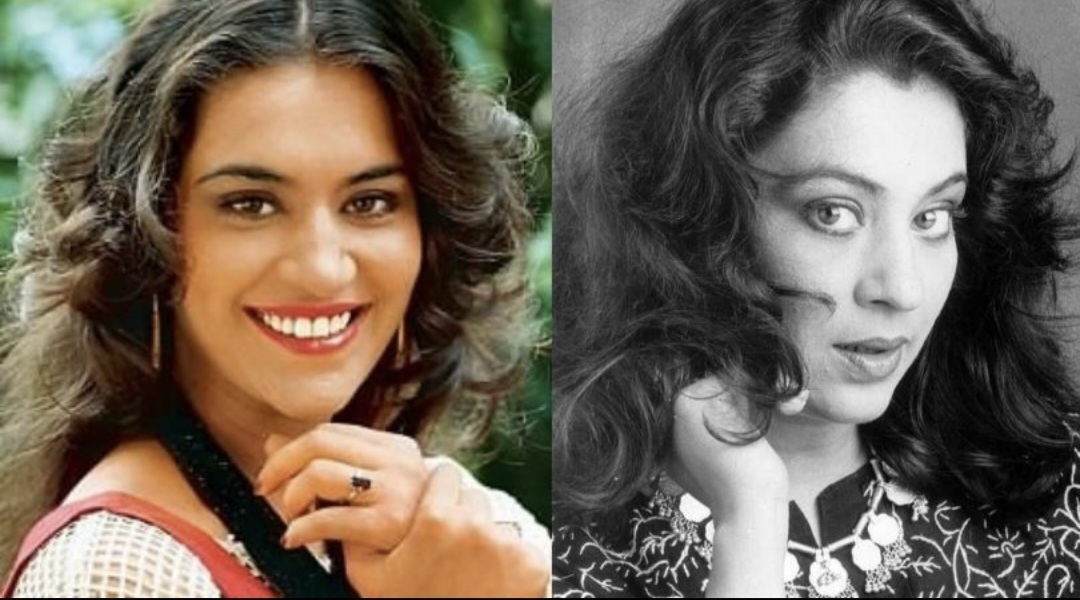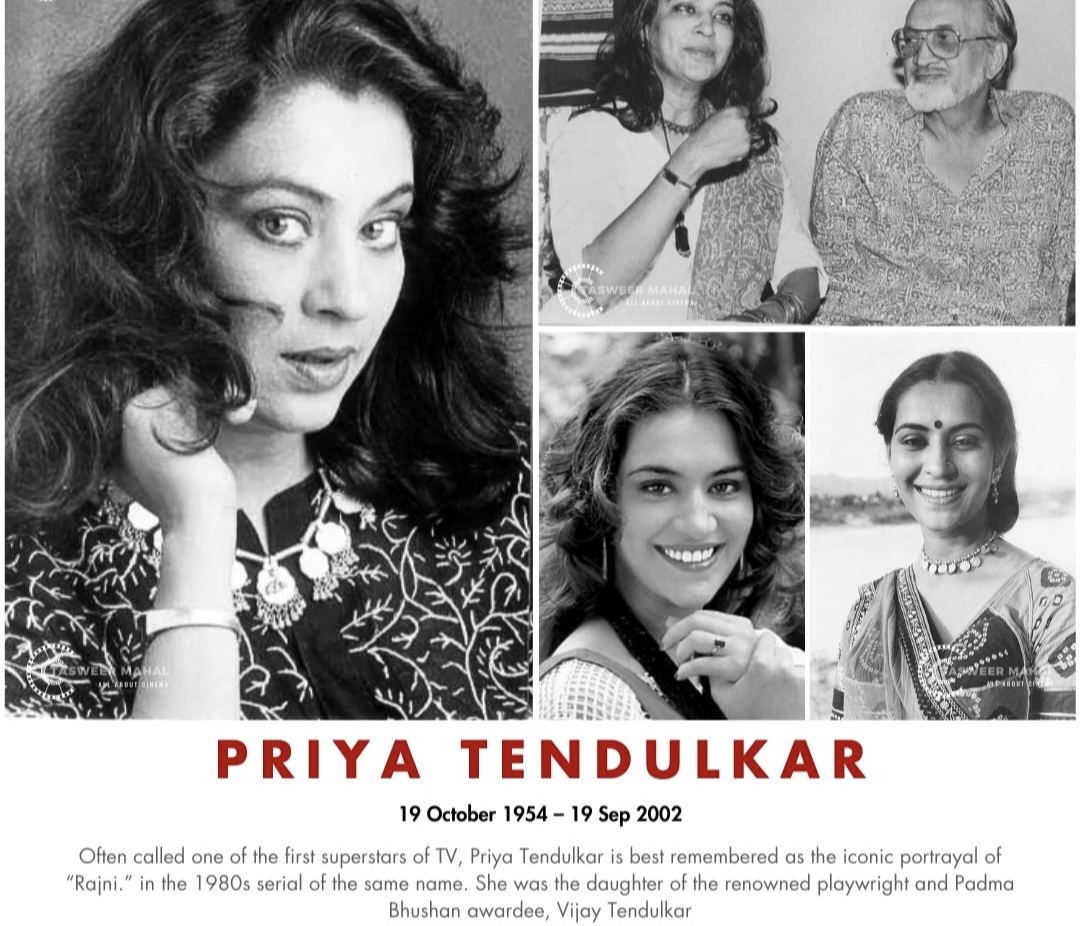Priya Tendulkar was not just an actress; she was a voice for change. Through her roles and her work as a talk show host, she fearlessly tackled social issues, making her a beloved figure in Indian households and a source of inspiration for many.
By Sameer Ahamd
Often regarded as one of television’s pioneering superstars, Priya Tendulkar is best remembered for her iconic portrayal of Rajni in the groundbreaking 1980s television series of the same name. This role not only defined her career but also resonated with audiences as a powerful representation of women’s empowerment in India.
Born on October 19, 1954, in the bustling city of Bombay, Priya’s passion for the arts was apparent from a young age. This inclination was likely nurtured by her father, the esteemed playwright and Padma Bhushan awardee, Vijay Tendulkar, whose influence profoundly shaped her artistic journey. Priya’s initial foray into the world of acting occurred in 1969, when she took on the role of a doll in the stage play Hayavadana, where she shared the stage with the talented Kalpana Lajmi. Around this formative period, she also appeared in various television commercials, including her debut in a sewing machine advertisement at the tender age of 15.
Before Priya’s acting career truly took off, she navigated a series of diverse jobs, including roles as a hotel service receptionist, an air hostess, and a part-time model. Additionally, she gained valuable experience as a newsreader, which further honed her communication skills.
Priya’s early exposure to drama and literature greatly influenced her artistic sensibilities, which she seamlessly incorporated into her performances. Her contributions to Marathi theatre are particularly notable, with memorable performances in plays such as Gidhade, Tee Phulrani, Ek Hatti Mulgi, and her father’s celebrated work, Swayamsiddha. These early experiences laid the foundation for her rich and varied career in the performing arts.
Priya made her film debut in Shyam Benegal’s acclaimed movie Ankur (1974), where she portrayed the role of Anant Nag’s submissive wife, showcasing her talent early on. Following this, her second film, Minchina Ota (1980), also featured Anant Nag as her co-star. She marked her entry into Marathi cinema with V.K. Naik’s Gondhalat Gondhal, and subsequently appeared in a string of successful films, including Thorli Jaau (1982), Malavarcha Phool (1982), Mai Baap (1982), Devta (1983), Ranine Daav Jinkla (1983), Thorali Jaau (1983), Mahadaan (1984), Mumbaicha Faujdaar (1984), and Maherchi Manse (1984). Additionally, she starred in the cult Gujarati film Pooja Ne Phool in 1983, further showcasing her versatility as an actress.
The pivotal moment in Priya’s career came in 1985 when she starred in the groundbreaking television series Rajani. This role propelled her to national fame and established her as a household name. Her character, a housewife who evolves into a fierce crusader against social injustices, resonated deeply with viewers, earning her the distinction of being regarded as the face of independent Indian women.
In the years that followed, Priya appeared in a myriad of iconic television serials, including Rahat (1995), Yug (1996), Itihaas (1996), Hum Paanch (1995), Aangan (1998), and Professor Pyarelal (1999), each of which showcased her remarkable range and talent. Her performances in these series were met with widespread acclaim and solidified her status as a leading figure in the Indian television landscape.
In addition to her extensive television work, Priya continued to act in a variety of films, including Vivek (1985), Nasoor (1985), Sasti Dulhan Mahenga Dulha (1985), Raat Ke Baad (1985), Besahara (1985), Majaal (1985), Sila (1985), Mohra (1995), Maza Saubhagya (1994), Trimurti (1995), Gupt (1997), Aur Pyaar Ho Gaya (1997), Pyaar Ishq Aur Mohabbat (2001), and many others. Each project contributed to her diverse portfolio and showcased her dedication to her craft.
Beyond her acting career, Priya was also a formidable presence as a host of talk shows, including the Priya Tendulkar Talk Show and Zimmedar Kaun. In these programs, she tackled pressing social issues with a refreshing candor and fearlessness, further establishing her as a voice for change and a proponent of social justice.
In her personal life, Priya married her Rajani co-star, Karan Razdan, in 1988, though their marriage ended in separation in 1995. Much like her professional journey, her personal life was marked by both triumphs and challenges, which she faced with the same resilience that characterized her on-screen portrayals.
Tragically, Priya’s life was cut short when she passed away from a heart attack on September 19, 2002, after a long and arduous battle with breast cancer. Despite her untimely departure, Priya Tendulkar’s legacy endures through her unforgettable performances and her unwavering commitment to advocating for social causes, inspiring generations to come.
The views expressed in this article are solely those of the author and do not necessarily reflect the opinions or views of this Magazine.


Leave a Reply